PBS News: March 13 & 14, 2020
BBC Click: The Tech Fighting The Coronavirus
Google: Coronavirus Tips
World Health Organization: What can people do to protect themselves and others from getting the new coronavirus?, Why is it recommended to avoid close contact with anyone who has fever and cough?, How is the new coronavirus affecting people who get it?, and Coronavirus disease (COVID-19) advice for the public
PBS NewsHour Weekend full episode March 14, 2020
Mar 14, 2020 PBS NewsHour
On this edition for Saturday, March 14, cities are preparing for the worst as the coronavirus spreads, drive-through testing rolls out in a New York community, the death toll from the virus climbs in Italy, and a look at the economic impact of the global pandemic as more businesses close down. Hari Sreenivasan anchors from New York. Stream your PBS favorites with the PBS app: https://to.pbs.org/2Jb8twG Find more from PBS NewsHour at https://www.pbs.org/newshour Subscribe to our YouTube channel: https://bit.ly/2HfsCD6
PBS NewsHour live episode, March 13, 2020
Streamed live 3 hours ago PBS NewsHour
Stream your PBS favorites with the PBS app: https://to.pbs.org/2Jb8twG Find more from PBS NewsHour at https://www.pbs.org/newshour Subscribe to our YouTube channel: https://bit.ly/2HfsCD6
The Tech Fighting The Coronavirus – BBC Click
Mar 13, 2020 BBC Click
Click investigates coronavirus misinformation and discovers the AI tools that could help track its spread and find new treatments. Subscribe HERE http://bit.ly/1uNQEWR Find us online at www.bbc.com/click Twitter: @bbcclick Facebook: www.facebook.com/BBCClick
Category Science & Technology
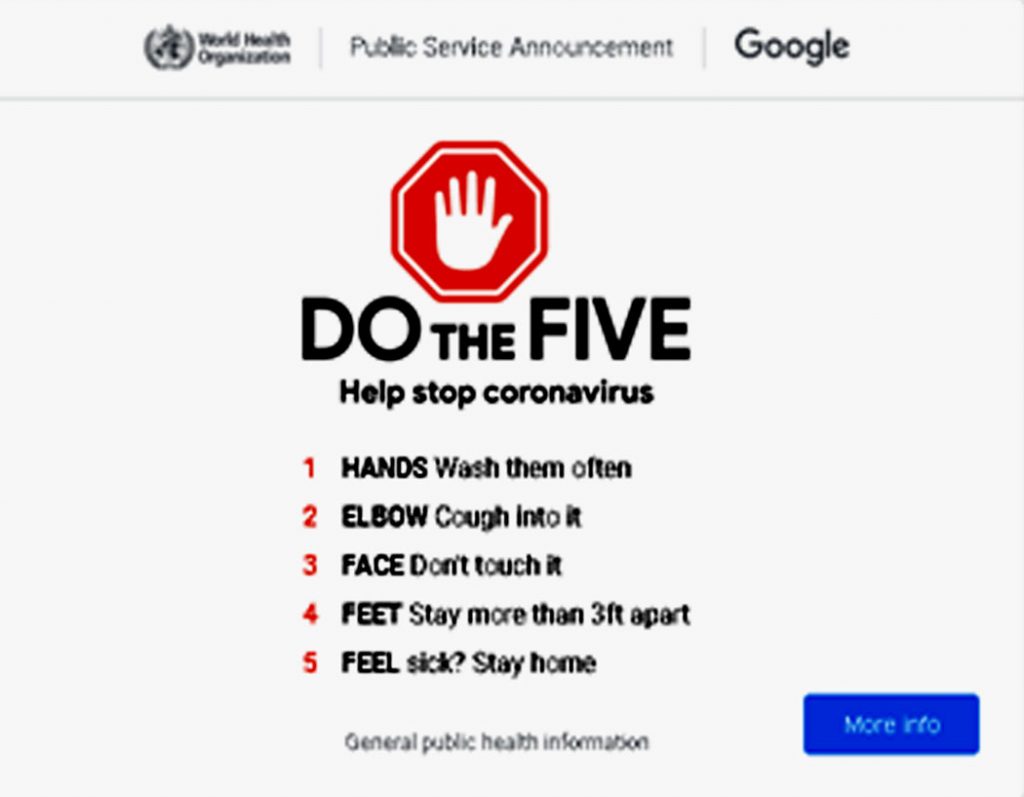
https://www.google.com/search?q=coronavirus+tips&fbx=dothefive
Google: Coronavirus Tips
World Health Organization: What can people do to protect themselves and others from getting the new coronavirus?, Why is it recommended to avoid close contact with anyone who has fever and cough?, How is the new coronavirus affecting people who get it?, and Coronavirus disease (COVID-19) advice for the public
https://www.who.int/emergencies/diseases/novel-coronavirus-2019/advice-for-public
What can people do to protect themselves and others from getting the new coronavirus?
Feb 5, 2020 World Health Organization (WHO)
There are several measures you can adopt to protect yourself against the new coronavirus. Watch this short video and find out what the recommendations from WHO experts are. For more information, please visit : https://www.who.int/emergencies/disea…
Category Nonprofits & Activism
Why is it recommended to avoid close contact with anyone who has fever and cough?
Feb 5, 2020 World Health Organization (WHO)
There are several ways you can protect yourself from the new coronavirus. One of the recommended measures is to avoid close contact with anyone who has fever and cough. Watch this short video to learn more about it. For more information, please visit: https://www.who.int/emergencies/disea…
Category Nonprofits & Activism
How is the new coronavirus affecting people who get it?
Feb 5, 2020 World Health Organization (WHO)
As with other respiratory illnesses, infections with 2019-nCoV can cause mild symptoms including runny nose, sore throat, cough and fever. It can be more severe for some persons ,and more rarely, it can be fatal. Watch this short video to find out more. For more information, please visit : https://www.who.int/emergencies/disea…
Category Nonprofits & Activism
Coronavirus disease (COVID-19) advice for the public
COVID-19 Response Fund
- Advice for public
Basic protective measures against the new coronavirus
Stay aware of the latest information on the COVID-19 outbreak, available on the WHO website and through your national and local public health authority. COVID-19 is still affecting mostly people in China with some outbreaks in other countries. Most people who become infected experience mild illness and recover, but it can be more severe for others. Take care of your health and protect others by doing the following:
Wash your hands frequently
Regularly and thoroughly clean your hands with an alcohol-based hand rub or wash them with soap and water.
Why? Washing your hands with soap and water or using alcohol-based hand rub kills viruses that may be on your hands.
Maintain social distancing
Maintain at least 1 metre (3 feet) distance between yourself and anyone who is coughing or sneezing.
Why? When someone coughs or sneezes they spray small liquid droplets from their nose or mouth which may contain virus. If you are too close, you can breathe in the droplets, including the COVID-19 virus if the person coughing has the disease.
Avoid touching eyes, nose and mouth
Why? Hands touch many surfaces and can pick up viruses. Once contaminated, hands can transfer the virus to your eyes, nose or mouth. From there, the virus can enter your body and can make you sick.
Practice respiratory hygiene
Make sure you, and the people around you, follow good respiratory hygiene. This means covering your mouth and nose with your bent elbow or tissue when you cough or sneeze. Then dispose of the used tissue immediately.
Why? Droplets spread virus. By following good respiratory hygiene you protect the people around you from viruses such as cold, flu and COVID-19.
If you have fever, cough and difficulty breathing, seek medical care early
Stay home if you feel unwell. If you have a fever, cough and difficulty breathing, seek medical attention and call in advance. Follow the directions of your local health authority.
Why? National and local authorities will have the most up to date information on the situation in your area. Calling in advance will allow your health care provider to quickly direct you to the right health facility. This will also protect you and help prevent spread of viruses and other infections.
Stay informed and follow advice given by your healthcare provider
Stay informed on the latest developments about COVID-19. Follow advice given by your healthcare provider, your national and local public health authority or your employer on how to protect yourself and others from COVID-19.
Why? National and local authorities will have the most up to date information on whether COVID-19 is spreading in your area. They are best placed to advise on what people in your area should be doing to protect themselves.
Protection measures for persons who are in or have recently visited (past 14 days) areas where COVID-19 is spreading
- Follow the guidance outlined above.
- Stay at home if you begin to feel unwell, even with mild symptoms such as headache and slight runny nose, until you recover. Why? Avoiding contact with others and visits to medical facilities will allow these facilities to operate more effectively and help protect you and others from possible COVID-19 and other viruses.
- If you develop fever, cough and difficulty breathing, seek medical advice promptly as this may be due to a respiratory infection or other serious condition. Call in advance and tell your provider of any recent travel or contact with travelers. Why? Calling in advance will allow your health care provider to quickly direct you to the right health facility. This will also help to prevent possible spread of COVID-19 and other viruses.
Ask WHO
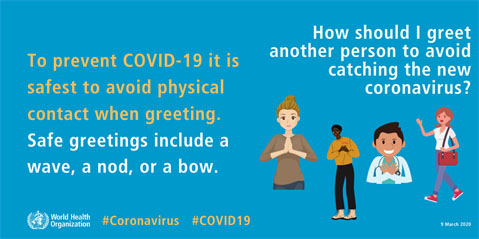
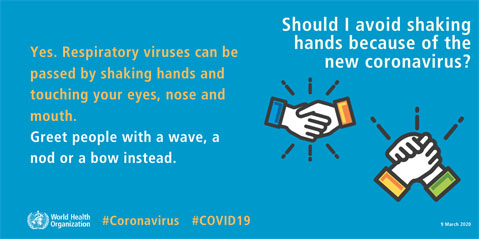
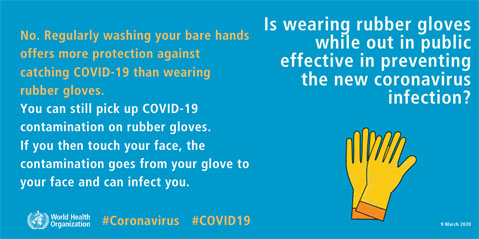
Be Ready for coronavirus
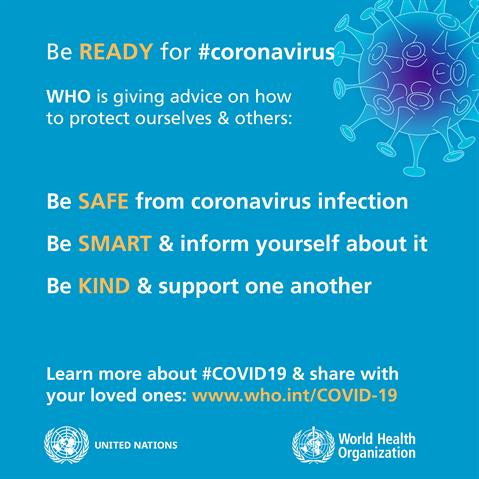
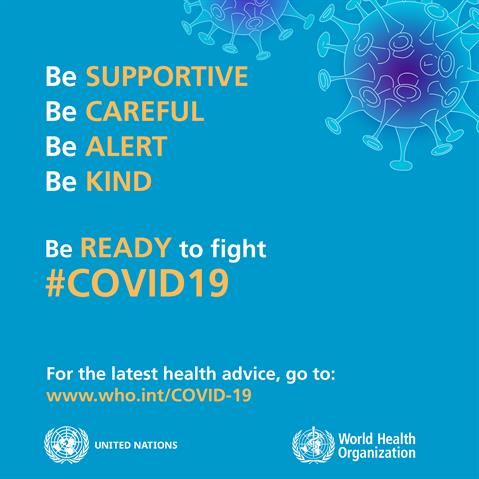
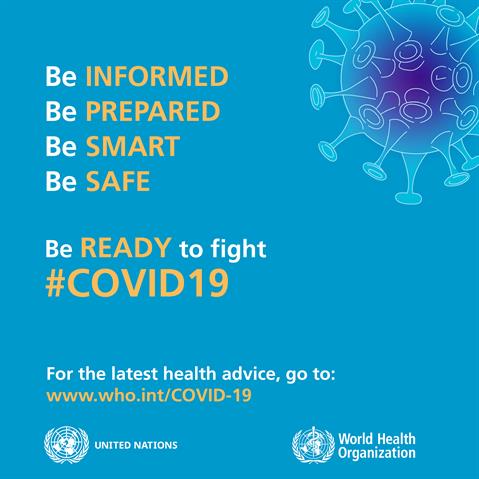
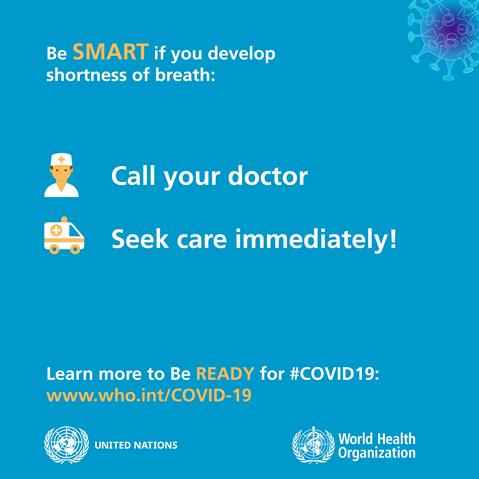
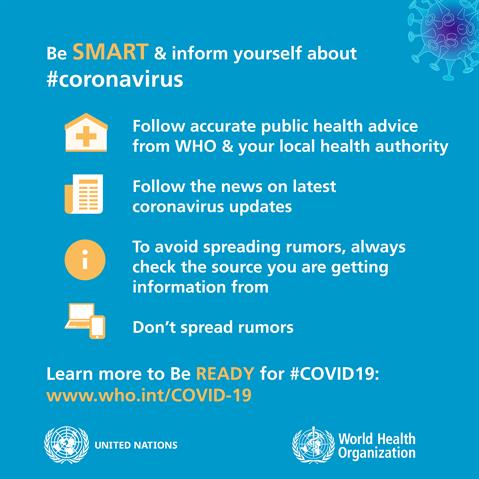
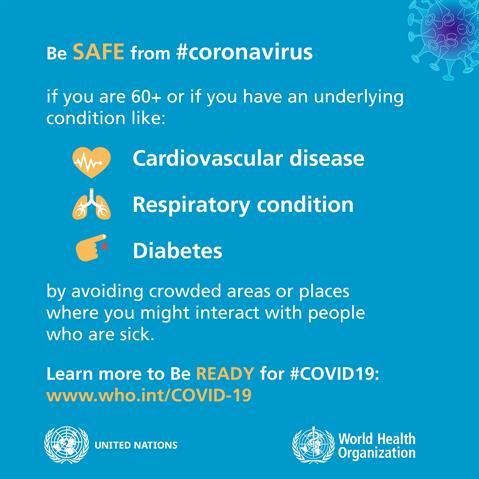
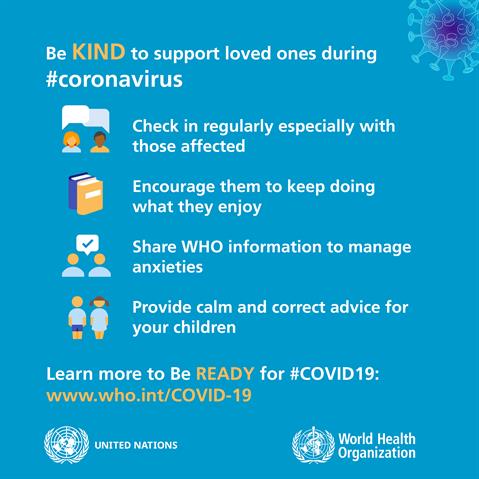
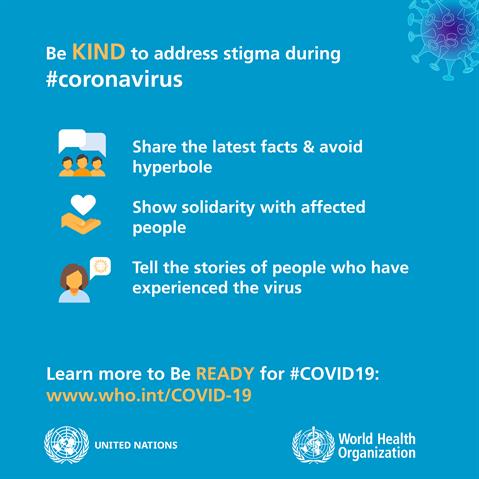
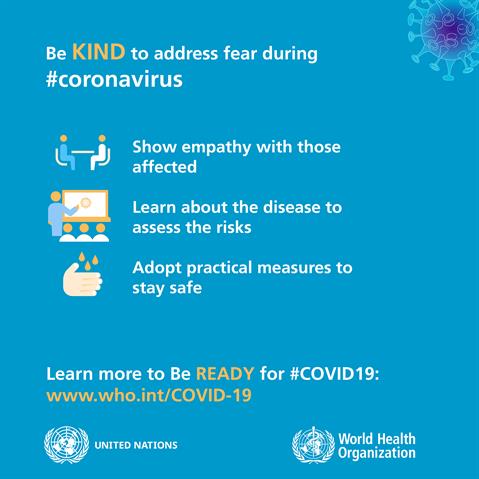
Protect yourself and others from getting sick
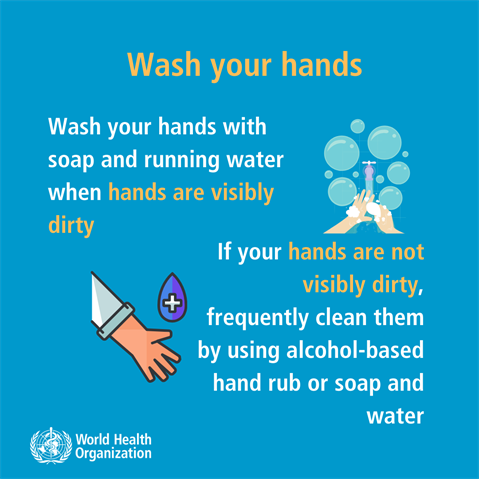
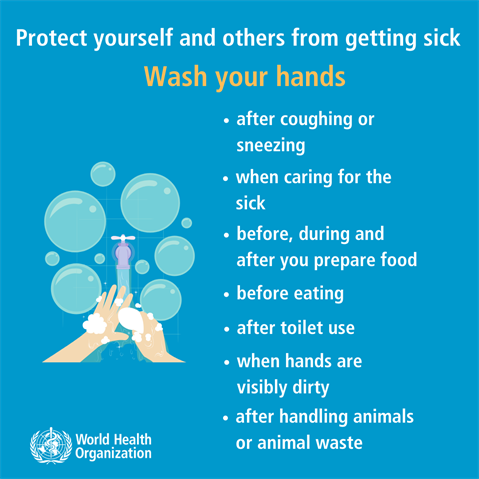
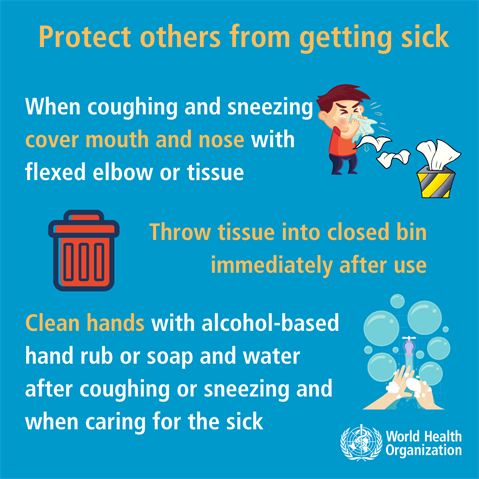
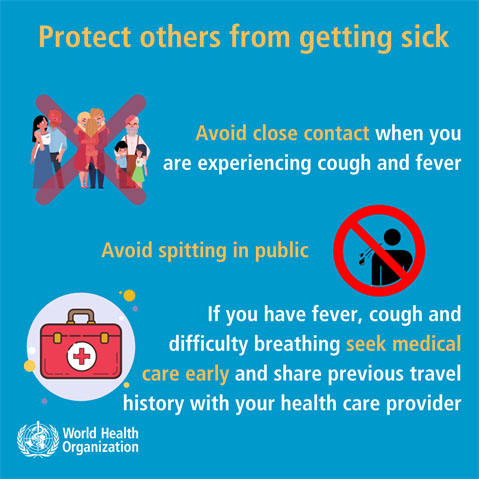
How to cope with stress during 2019-nCoV outbreak
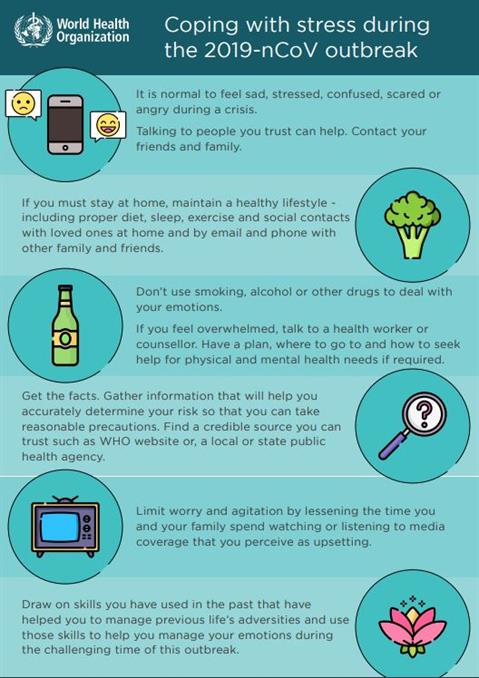
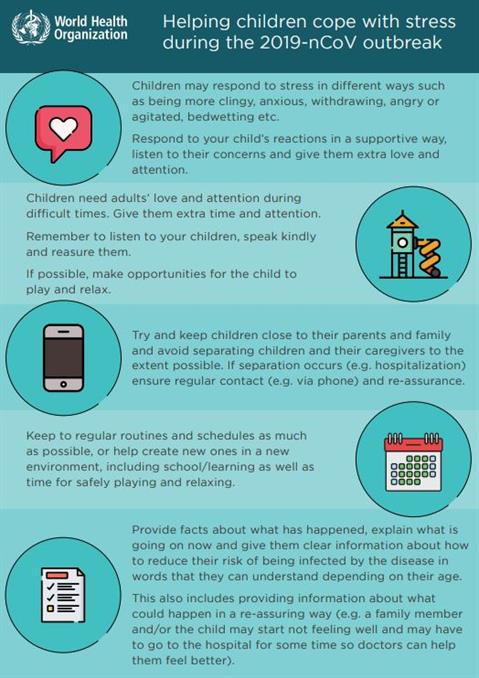
Practice food safety
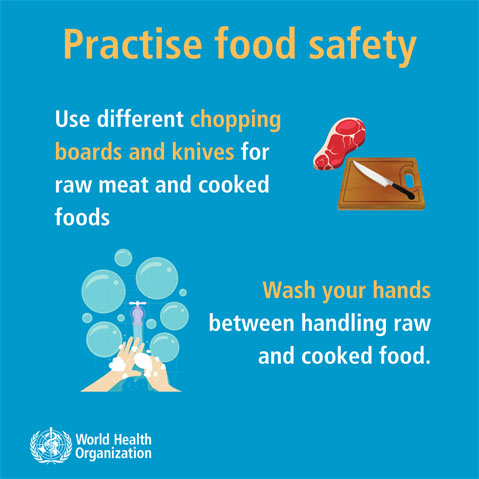
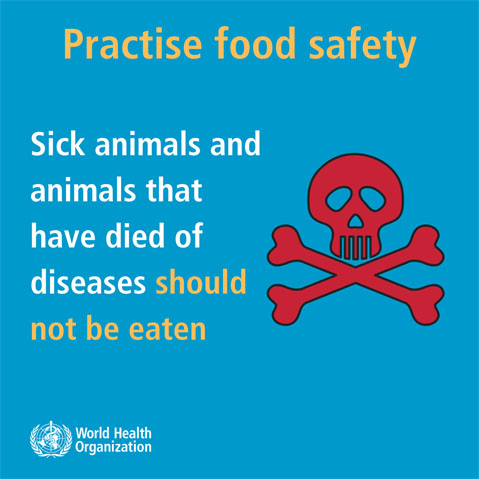
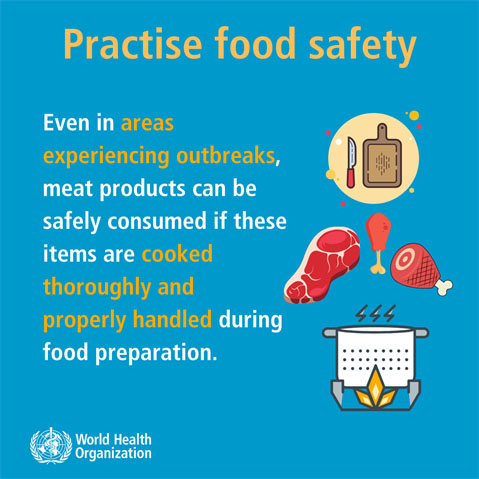
Shopping/Working in wet markets in China and Southeast Asia
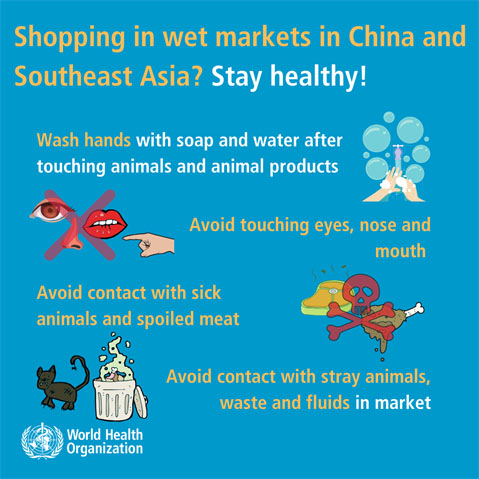
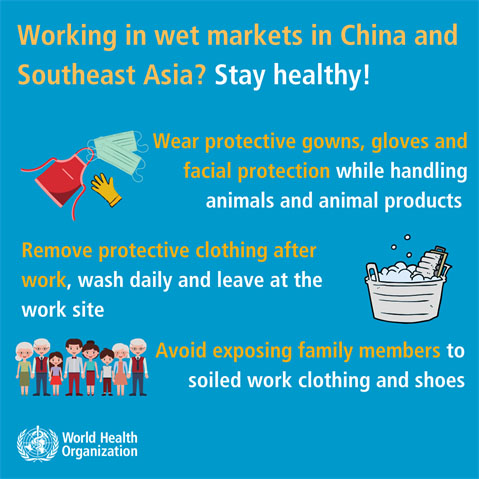
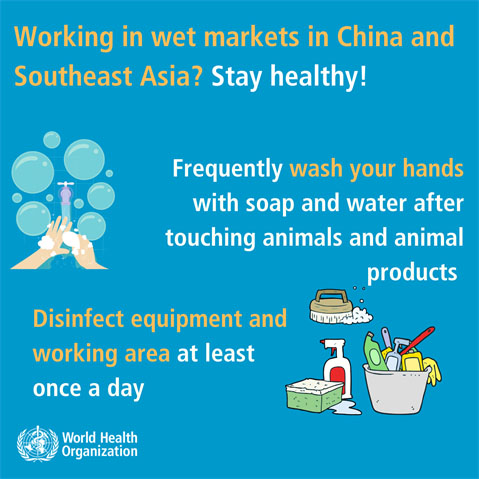
Stay healthy while travelling
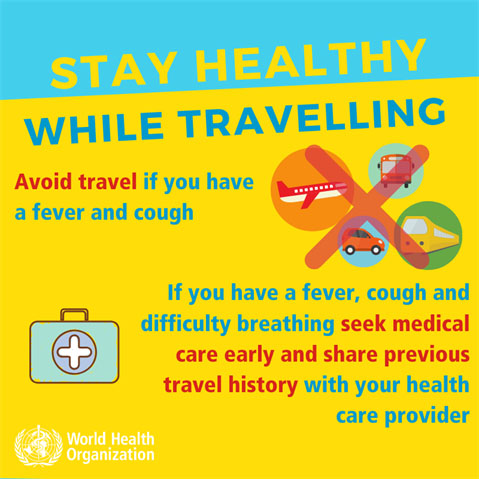
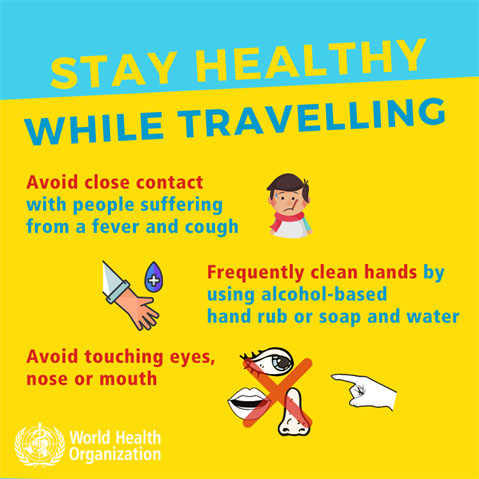
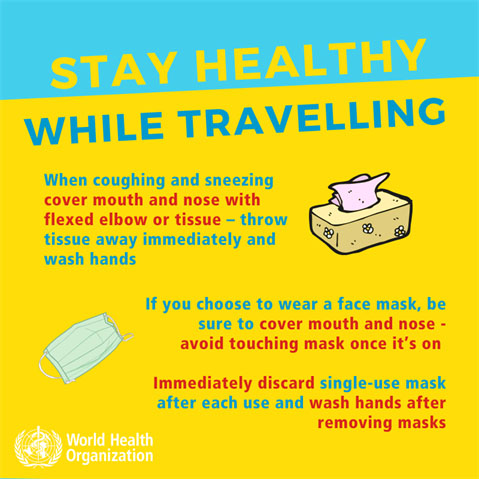

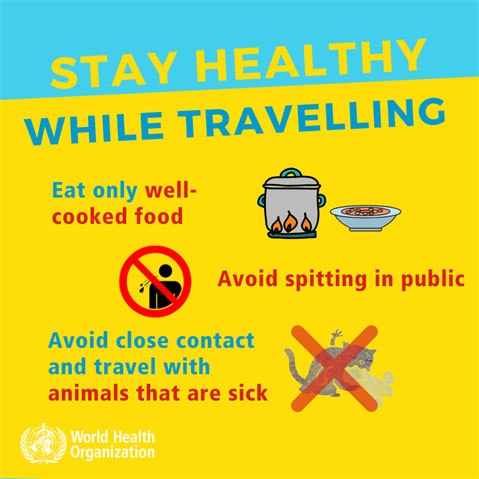
Leave a Reply